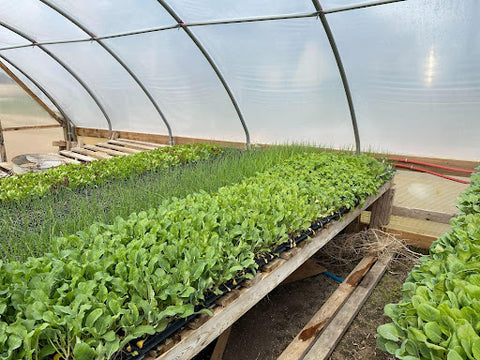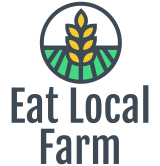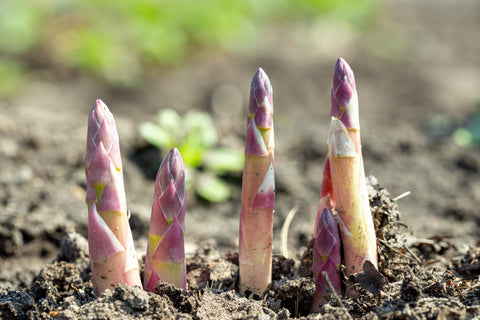Supplier Spotlight #2 Heritage Lane
Series #2
Greg Boyd
Heritage Lane Produce, Langton, Ontario
June 2022



Aquaponics is a sustainable method of production, which couples hydroponics (growing plants in water) with aquaculture (raising aquatic animals). The highly nutrient rich (especially nitrogen-containing) water created by the fish production is fed to the plants. This almost completely closed system results in a drastic reduction (98%) in water usage compared to conventional methods. In addition, very few nutrients or minerals need to be added to the growing medium for the lettuce. Greg is a pioneer in this field in Norfolk County and has developed a small yet productive operation. The aquaponics system is operational typically from March-November, and during this time, lettuce and tilapia are grown simultaneously.


In addition to his aquaponics operation, Greg also produces a variety of leafy greens, including kale, mustard greens and spinach, as well as other vegetables such as, broccoli, beets, carrots, leeks, and a unique variety of spring onion.

We had the pleasure of meeting Greg at his farm last month and were very impressed by the high quality of all of his products. We had the opportunity to ask Greg a few questions about Heritage Lane and its operations.

Q: Why did you choose to develop aquaponics in Norfolk County?
We struggled with field production of head lettuce due to wildlife damage and adverse weather conditions so we originally looked at hydroponic production in a greenhouse. We however found it difficult on a small scale to manage an hydroponic system where all nutrients need to be added to the water in the correct concentration. We came across a story from the CBC about an aquaponics system being operated by the Mississauga food bank and thought that perhaps that would be a solution to the nutrient problems we experienced with a small-scale hydroponic system.
Q: What are the additional nutrients that have to be added to the system for optimal plant growth?
We add iron as fish food doesn’t contain iron. When conditions are right for rapid lettuce growth we also supplement with potassium sulfate and regulate water pH with lime. The nutrients derived from the fish provide a base constant supply of nutrients, we just have to top up when lettuce growth exceeds that being supplied naturally.
Q: Do you use fertilizer and pesticides for your conventional crops?
We use conventional fertilizer supplemented with composted cattle manure for our field crops. We don’t use insecticides or fungicides on the field crops but do use some herbicides for weed control as the amount of hoeing and cultivating that is required exceeds the amount of labour that I am able to find and is far too costly to be feasible at the scale that we are at.
Q: How does your farm contribute to the local economy?
We employ people strictly from the local community, whether they are students or recent graduates. 75% of our production is also marketed and sold within a 30 minute drive radius of the farm so customers' food dollars are being spent supporting a local farm business which in turn helps to support the services that the business utilizes in the community.
https://heritagelaneproduce.com/

